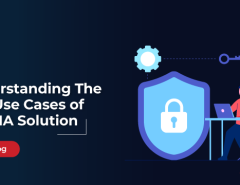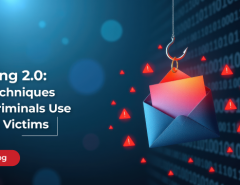Whether your organization is into manufacturing steel or designing apps for smartphones, employee work flexibility is becoming more of a requirement than a privilege for every organization. Start-ups and SMBs are seeing real gains by encouraging Bring-Your-Own-Device (BYOD) at workplace. Infact, Gartner predicts that by 2017, half of employers will require employees to supply their own device for work purposes. The BYOD policy is an economically viable and offers great impetus to mobile workforce opportunities, increasing job satisfaction and more.
Recently, the world’s most popular gaming app Pokemon Go is giving nightmares to organization encouraging BYOD policies. A dangerously addictive app, Pokemon Go can put your entire organizational information security at risk and can even kill BYOD policies of your organization.
Pokemon Go- The Game
Pokemon Go can be easily downloaded to an Android or iOS device. The game has witnessed 50,000,000 – 100,000,000 downloads on Google Play Store within a month of its launch. Once downloaded, the game has access to a user’s GPS location and clock to detect when and where the user is in the game. To add some personalized interactivity, Pokemon Go also has access to the device’s camera to make game characters appear in the player’s on-screen surroundings. It is all about catching those characters in the game.
Pokemon Go and the Indian Enterprise Scenario
Pokemon Go has not been released in India. So, if you witness your colleagues going crazy with the game then there is a danger lurking in your organization. Pokemon players in India have turned to third-party apps without even comprehending the cyber security risks it can hold with regards to personal and professional information security.
A popular app like Pokemon Go takes just few days for cybercriminals to exploit and launch dangerous malware attacks like DroidJack giving them full control over a victim’s phone. And, if the phone contains confidential corporate data, then it is a big cause to worry.
Irrespective of its economic feasibility, BYOD policy in itself presents a challenge to ensure that company data remains in the appropriate hands. And, if employees download third-party apps like Pokemon Go, then it’s time for organizations to think of a well-defined mobile security strategy.
Mobile Device Management (MDM)
Mobile devices and applications are becoming an integral part of any organization’s workflow. Policies like BYOD permits SMBs and now large enterprises to go mobile without a huge device and service investments. Nonetheless, a well-structured BYOD policy requires a well-defined security strategy especially when apps like Pokemon Go poses significant data security risks, malware threats and more.
Seqrite Mobile Device Management (MDM) allows enterprises to implement a wide range of device controls without ever having to physically handle a user’s device. Functioning completely over-the-air, MDM enables enterprises to manage and regulate comprehensive device policies and configuration settings.
The solution comes with proactive security management and helps enterprises to enforce policies around downloads of third-party apps like Pokemon Go and monitor data usage. Using the Application Control feature IT administrators can manage the app repository and install/uninstall apps and set restrictions on apps that are installed on devices. These settings can be managed on devices remotely from the server portal, thus enabling ease of use and access.
Further, the Seqrite Launcher feature allows admins to customize how mobile devices function within the enterprise. Apps on the device and in-built features can be enabled or disabled as per company policies. Seqrite Launcher functions as a standalone app and ensures that mobile devices are locked down into kiosk mode for maximum productivity.
No device can be 100% protected within or outside the enterprise. MDM is one of the best approaches to ensure that enterprise devices are protected against malicious apps and malware threats attempting to steal confidential and sensitive corporate data.
Source:




